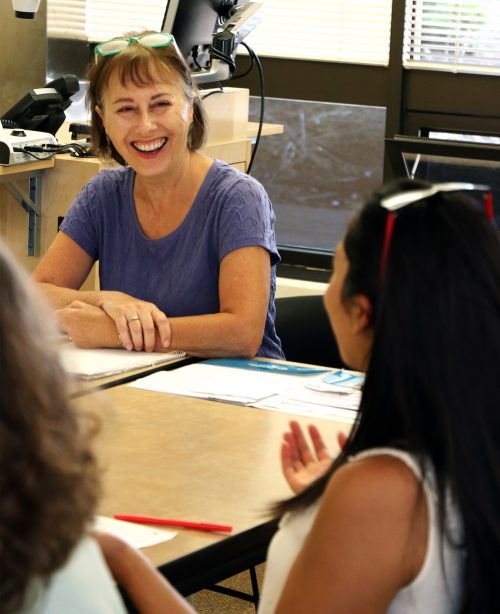This content was published: August 20, 2018. Phone numbers, email addresses, and other information may have changed.
How to Make Public Speaking a Rewarding Experience for All
Sue Wendel
 When you talk to folks about public speaking, many turn ashen, shake their heads, and exclaim that they would never voluntarily stand up in front of an audience to speak. It’s true that the fear of public speaking shares the top of the list among other top fears, like spiders, snakes, airplanes, and death. But why do we fear public speaking? Does it have to be so?
When you talk to folks about public speaking, many turn ashen, shake their heads, and exclaim that they would never voluntarily stand up in front of an audience to speak. It’s true that the fear of public speaking shares the top of the list among other top fears, like spiders, snakes, airplanes, and death. But why do we fear public speaking? Does it have to be so?
Public speaking is a learned skill. For some, of course, it may come more naturally than to others. Learning effective speech creation and delivery skills empowers all: the speaker, the message, and the audience.
Set Your Speech Goals.
Imagine being invited to give a toast at a wedding, or asked to make a presentation at work. You prepare well: you know your audience and topic, the goal of the speech, and have a working outline. You’ve practiced. When you’re finally ready to speak, your nervous energy is transformed into the fuel that helps you to deliver the speech or presentation with poise and confidence. After you finish, your audience is appreciative and has reaped the benefits from hearing what you have shared.
People successful in school, work, even personal relationships, understand the value of being able to clearly communicate facts, ideas, and feelings, whether it involves speaking to an audience, a small group, or even one-on-one. How have these people overcome their fears about public speaking to become confident and effective speakers? Many have learned about important elements such as audience identification, speech construction, and delivery techniques. They also know that it takes preparation and practice to deliver an effective speech. As a result, they are not threatened by public speaking, but find it rewarding as they confidently deliver a message that benefits an audience.
Structure and Practice.
Yes, public speaking anxiety and apprehension are real – both physically and mentally, and sometimes an audience isn’t as appreciative as you would have liked. But when you determine your speech goal, think about audience characteristics, know how to structure a speech for impact, properly use an outline, and practice and polish your delivery – you will discover you’re a far more confident and effective toast-master. As a wise speaker once said: you become a conduit of the message; make those butterflies fly in formation!
Remember, it’s not about you being judged up there. It’s about offering an audience the opportunity to learn, to consider, to be entertained, or to be inspired.
Sue Wendel earned a Masters degree in Communication from Portland State University, and achieved DTM standing (the highest level) in Toastmasters International. She is a public speaking coach, and tutors public speaking in the Rock Creek Student Learning Center. Her classes, Public Speaking for All: Introduction and Make Your Next Speech Shine Workshop, offered through PCC Community Ed, is for people who want to learn the basics of public speaking, and for those who want to tackle speech anxiety and build confidence. The class covers speech structures, creating and using outlines, and effective delivery skills – all through interactive and fun activities. The small class size allows students lots of opportunities to practice and receive constructive feedback within a supportive learning environment.
